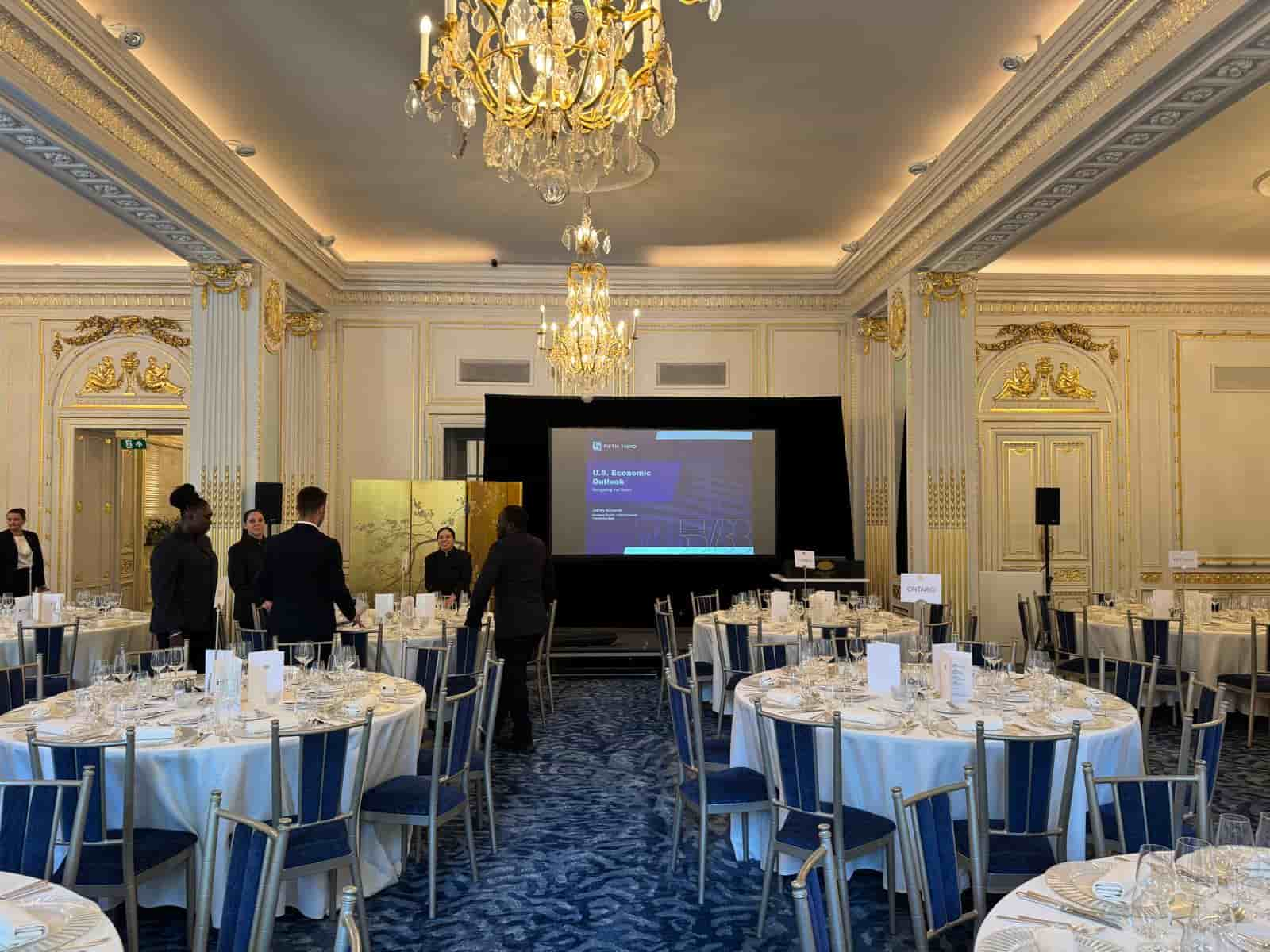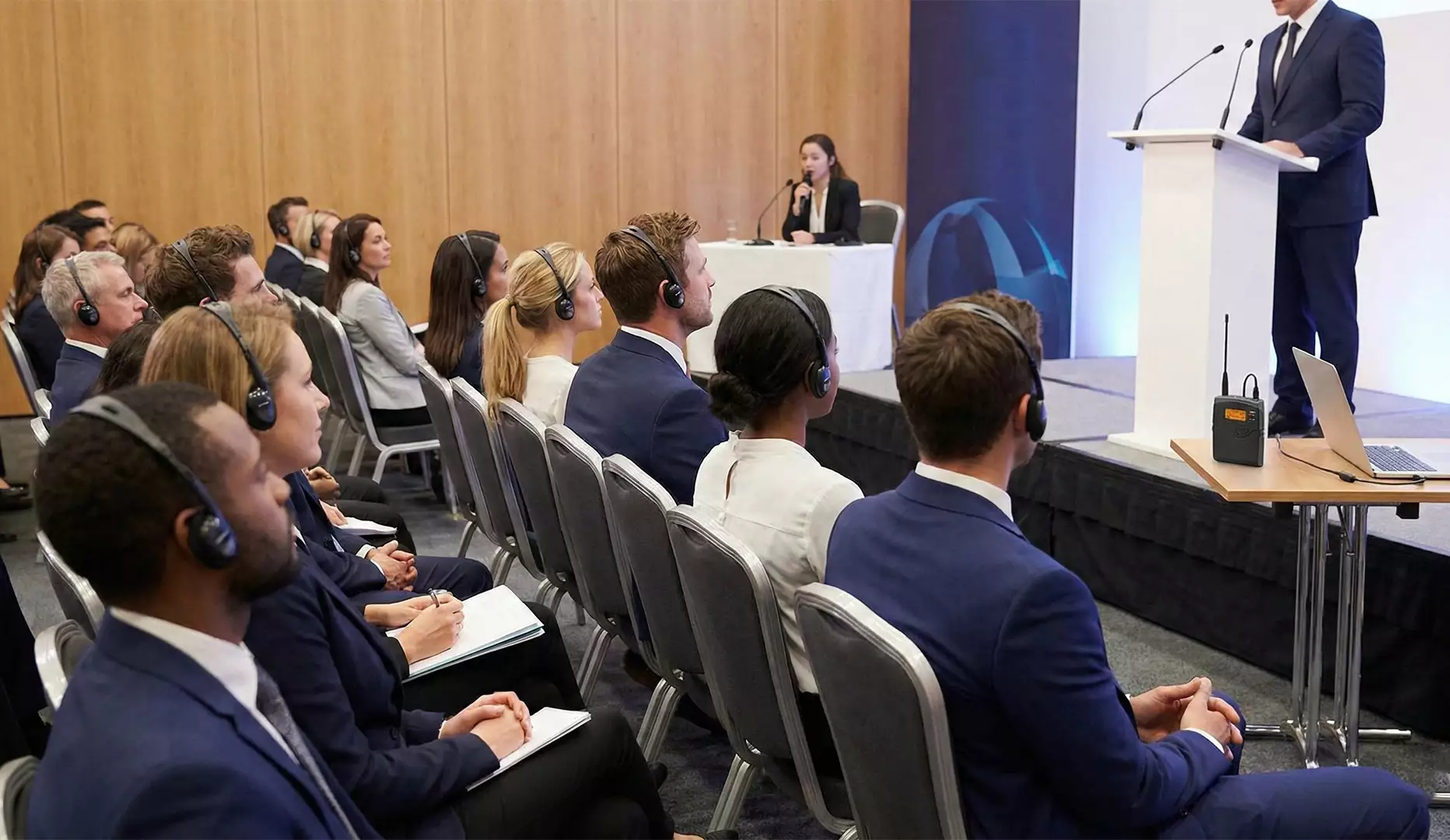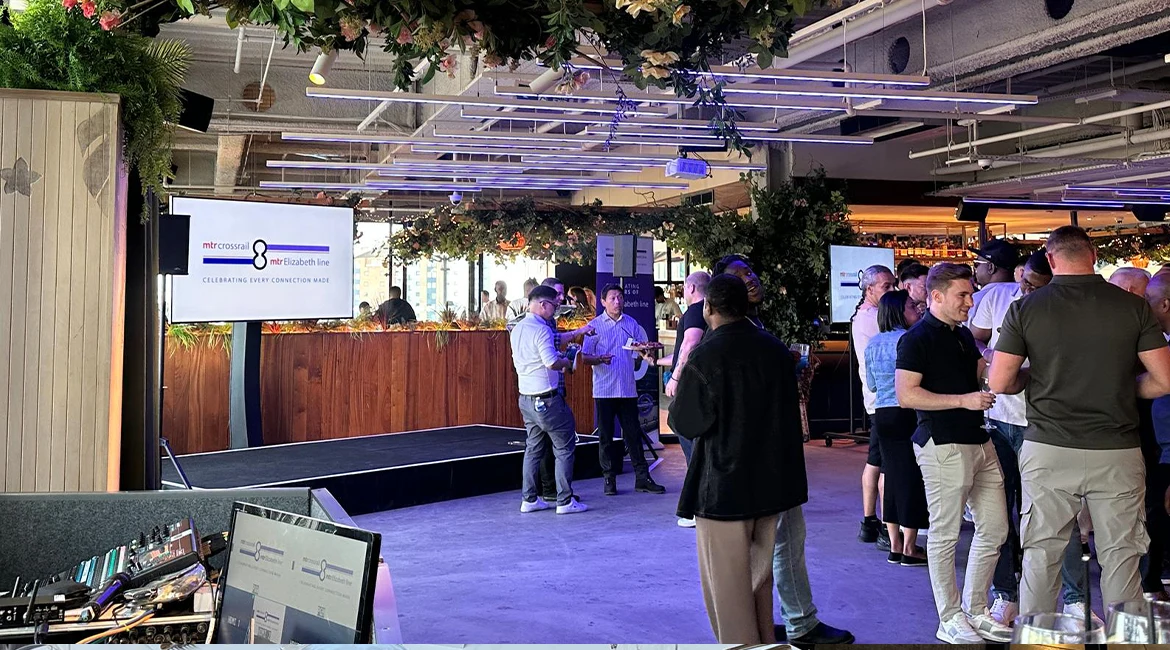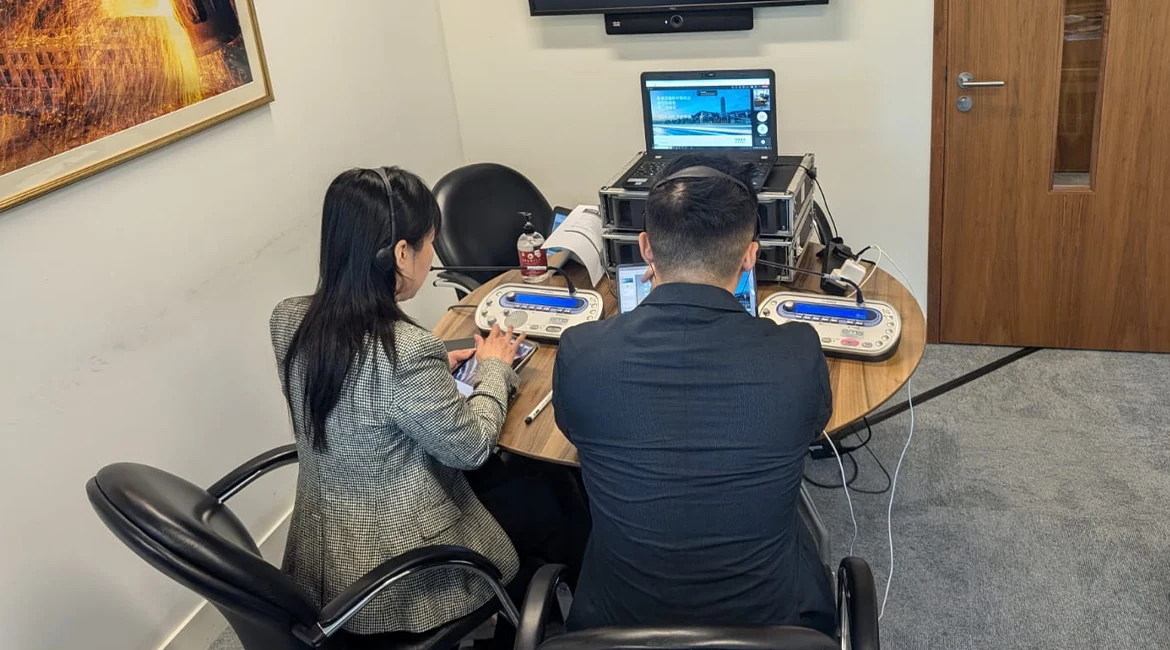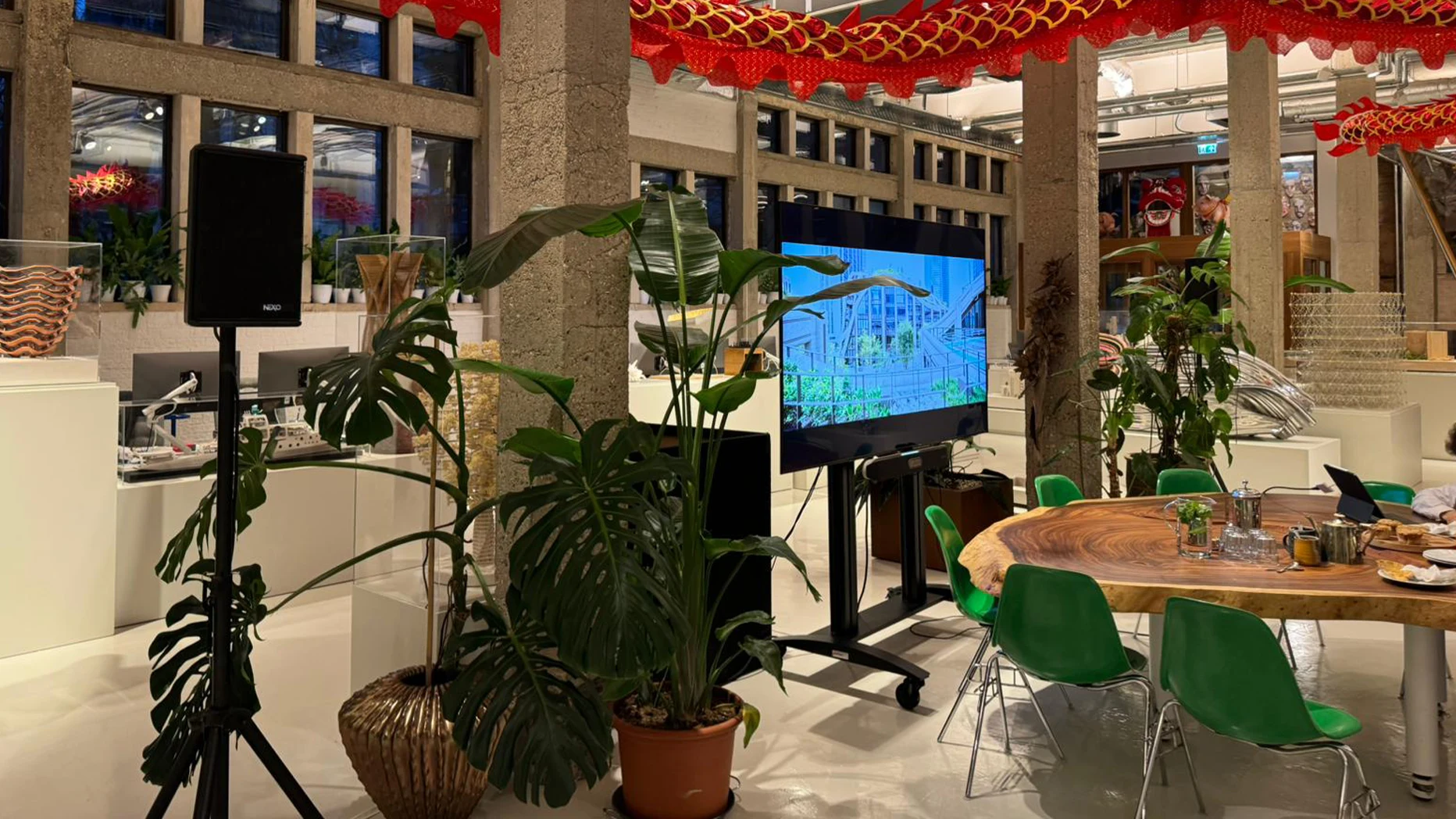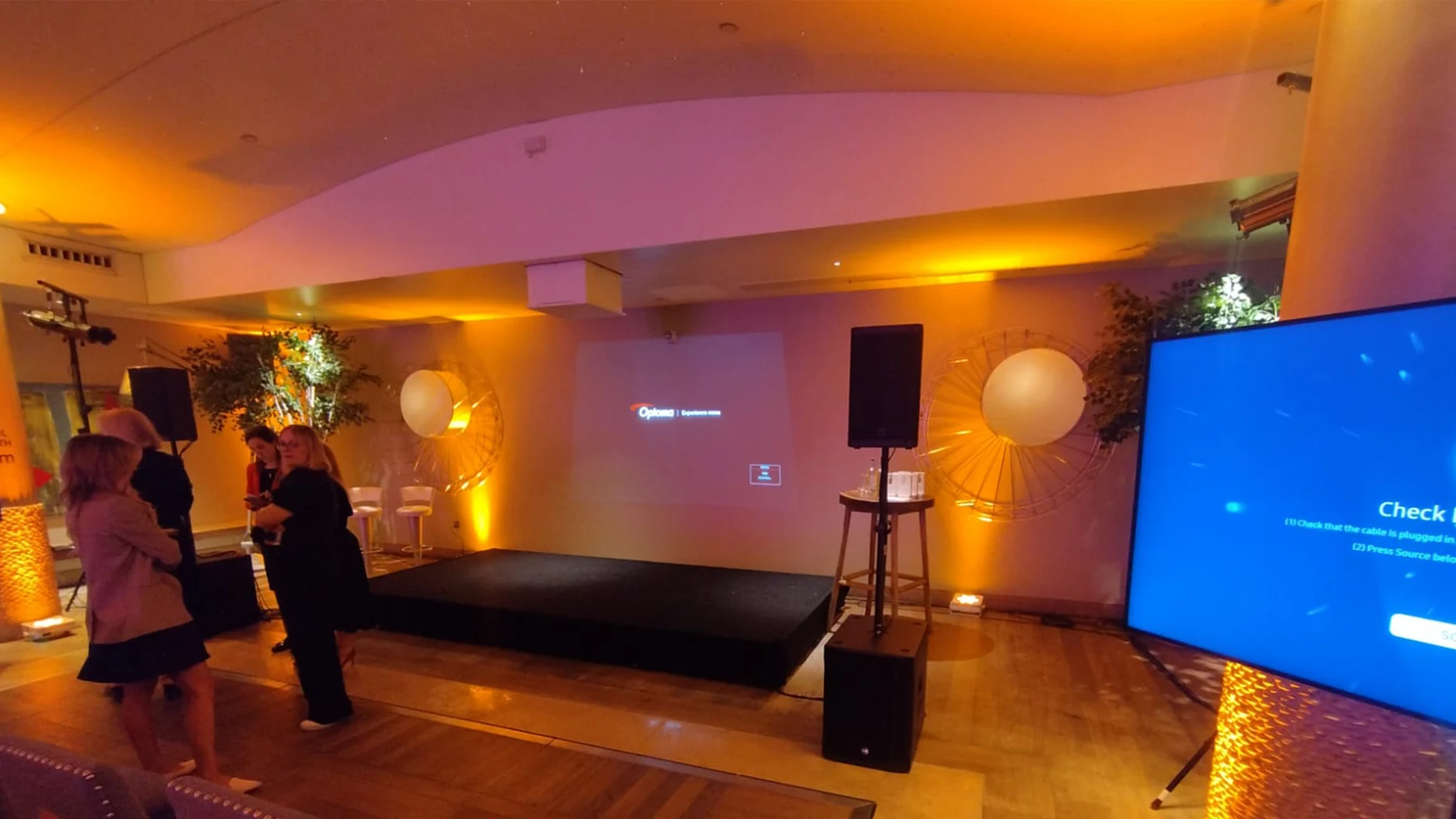An event can fall apart quietly, and most people never see it coming. It starts with a contract. A few unchecked boxes. A couple of missing lines. And before you know it, you’re figuring out things you assumed were already sorted.
- That LED screen your team ordered? No power.
- That sound system you paid for? Can’t go louder than a vacuum cleaner.
- Your crew? Stuck outside waiting for access.
This happens all the time. Not because people don’t care, but because they don’t know what to ask. Venue contracts can be long and dull, but they hold the power to either support or ruin your event.
Every great experience starts with the right groundwork, which begins with asking the right questions before signing anything.
If you’re planning an event and bringing in AV, lighting, staging, or LED displays, here’s what you must clarify in your venue agreement.
What are the load-in & load-out rules?
You’ve got a kit arriving. Trucks full of lights, cables, trusses, and screens. But can they get in?
Venues often have fixed access windows. Sometimes it’s an hour. Sometimes it’s shared with five other events. Sometimes they forget to tell you there’s no lift, and your techs are stuck dragging flight cases upstairs.
Ask exactly when and how your team can load in. Is it the night before? Early morning? Will they have vehicle access close to the doors? Is there a loading bay or freight lift?
These small details have big effects. You need time to rig the lighting. You need clearance for staging. One delay, and your entire schedule gets wrecked.
Can I use my own AV team and equipment?
You’ve got trusted partners. You know what gear you want. But some venues will say no.
They’ll push you to see their in-house AV team. And while that might sound convenient, it usually means you’re stuck with a basic kit, no customisation, and higher prices. So, ask: Can you bring in your AV suppliers like AV Productions? Will the venue charge you for doing so? Are there any insurance or safety policies your team needs to meet?
It’s your event. You should have the freedom to work with the best, not the ones on the venue’s payroll.
How much power does the venue provide, and where is it?
Lighting, LED walls, sound systems, all of them eat power. And not just any power. You need a stable circuit, 3-phase if you’re running a big kit, and proper distribution. Most venues won’t offer this info upfront. But if you don’t ask, your tech won’t work the way it should.
You need to know how many amps are available, how close the supply is to your stage, and whether the venue charges extra for higher power draw.
A weak or far-off supply can mean running long cables, which wastes time and safety. This is one of those questions that only gets asked when it’s too late.
What’s the cancellation policy?
Plan change. Guest numbers shift. Budgets shrink. Sometimes events get postponed. So your contract needs to be ready for that.
Ask what the venue’s cancellation rules are. Will you lose your deposit if you cancel a month out? What if you rebook for another date? Is there a sliding scale of penalties?
Also, ask what happens if the venue cancels? Do you get your full refund? Any compensation? Knowing the worst-case scenario helps you stay in control no matter what.
If the venue gets rebooked after cancellation, do you still pay fees?
Here’s a sneaky one most people miss. You cancelled your event. The venue rebooks the space for someone else. But you still get charged the full cancellation fee.
Ask if the fees are reduced if the venue rebooks your slot. That’s fair. You should not be paying for a night they’ve sold twice.
Clarifying this protects your budget and opens space for better conversations if things need to change.
What exactly is included in the venue hire price?
Don’t assume anything. That one line that says “full venue hire” might not include Wi-fi, tables, power, or even chairs.
You need clarity. Are tables, staging, and furniture included? Is lighting part of the package or a basic wash?
Are there hidden admin fees, cleaning charges, or deposits? Ask for a full breakdown. Every single item. You wouldn’t book a holiday without knowing if breakfast is included; the same rules apply here.
Can we set up the day before?
This one’s gold if you’re running a large show. Early access can save you time, reduce stress, and cut labour costs.
So ask: Is the venue available the day before for setup? If not, can you get in early in the morning? Are there extra fees?
Venues often leave space free the day before big events, but they won’t offer it unless you ask. And for AV-heavy events, this extra time is priceless.
Is there reliable Wi-Fi, and what’s the cost?
You’d think Wi-Fi would be free. Not always. Some venues still charge per device or limit the bandwidth.
And if your event relies on streaming, online check-in, or even live polling, bad internet means bad business. Ask about the speed, the number of connections allowed, and whether it’s public or private. If it’s weak, plan for an external provider in advance.
Are there any sound, light, or rigging restrictions?
Not every venue lets you go out with fog, strobes, or loud music. There may be noise limits. Some don’t allow rigging from the ceiling. Others ban haze machines altogether.
So ask what’s allowed. Can you hang lights from a truss? Can you use pyrotechnics? What’s the decibel limit?
Don’t go by what you’ve seen at past events. Go by what the venue puts in writing.
What happens if attendance is lower than expected?
A snowstorm. A train strike. A national event on the same day. Anything can affect turnout. Ask the venue how they handle situations with low attendance. Will you still pay the full fee? What if you didn’t meet the catering minimum?
You’re not asking to escape your responsibilities. You’re asking to build on realistic terms in case the unexpected happens.
What’s the venue’s policy on damage and insurance?
If someone spills red wine on a chair, who is responsible for the cleanup? If a light falls and cracks a tile, is that your problem?
Most venues will ask for liability insurance. That’s normal. But check what’s covered. Is damage billed at cost or inflated prices?
Also, ask if the venue itself has insurance, and whether their team will walk you through a damage report before and after the event. Protecting yourself upfront saves major stress later.
What’s the cancellation or rescheduling policy?
A speaker may drop out. A client may shift the date. Your contract should protect you if plans change. Look for a sliding scale cancellation clause (say, 25% if you cancel 90 days out, 75% if it’s 30). Clarify whether you can reschedule without losing your deposit. And check for a force majeure clause, what happens if there’s a storm, a strike, or something no one saw coming? One flexible clause could save you thousands of pounds. In a volatile world, flexibility is gold.
Is there a dedicated venue contact on the day?
When the lights go up and guests arrive, you don’t want to be hunting for someone with the Wi-Fi password.
Ask if there’s a dedicated venue manager for your event. Someone who knows the building, has a key to the back doors, and can quickly solve problems.
Events move fast. Having one calm, capable venue contact changes everything.
What are the venue’s vendor policies?
Many venues have a “preferred vendors” list. That’s not a bad thing, unless it’s exclusive. If you’re told you must use their caterer, decorator, or AV tech, your hands are tied.
Ask:
- Can I use my own caterer, AV, and stage design team?
- Are there extra fees for doing so?
- Is proof of insurance or certification required?
Why it matters: With 78% of event marketers saying in-person events drive ROI, you need full control of your team to deliver results, not restrictions.
What are the venue’s technical limitations?
The “tech specs” of a venue tell you what’s possible and what’s not.
Look for:
- Ceiling height and rigging points (important for trusses and lighting bars).
- Sound restrictions (some venues have noise limits or curfews).
- Internet bandwidth (Especially for hybrid or live-streamed events).
- Restrictions apply to fog machines, lasers, and certain types of lighting.
You might plan a dramatic reveal with haze, lights, and music, only to find out that haze machines are not allowed. Always check early.
Who is your point of contact on the day?
You’d be surprised how often this is missed. On show day, you need someone from the venue who knows what’s going on.
Ask:
- Who is the venue manager on the day of the event?
- Will they be there for load-in, setup, and breakdown?
- Is there a backup contact if they’re unavailable?
A lot can happen in those final hours. Having a responsive venue contact can prevent delays and keep your event moving smoothly.
Final thoughts
A great contract doesn’t just protect you. It sets your event up to run smoothly, with fewer surprises, and more time to focus on what matters.
When you’re planning a production that involves LED screens, pro lighting, custom staging, and a top-tier AV experience, the venue must work with you, not against you.
So ask the hard questions. Ask the obvious ones. And don’t stop asking until everything makes sense.
Because events aren’t just made on stage, they’re made in the small print, too.
If you’re still choosing a venue, AV Productions works with some of the most reputable spaces across London. That means less hassle, better access, and fewer surprises when it’s go-time.
